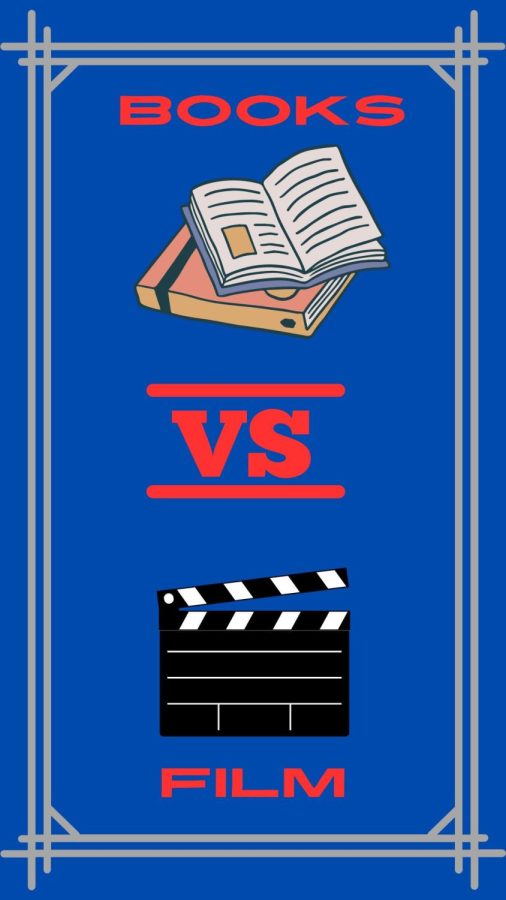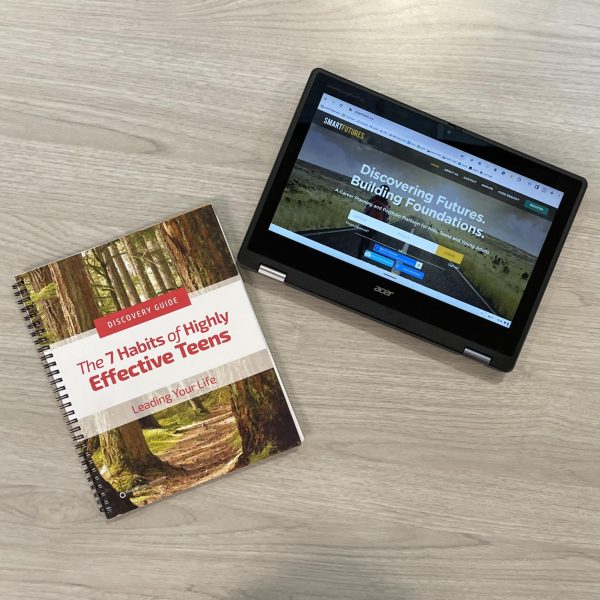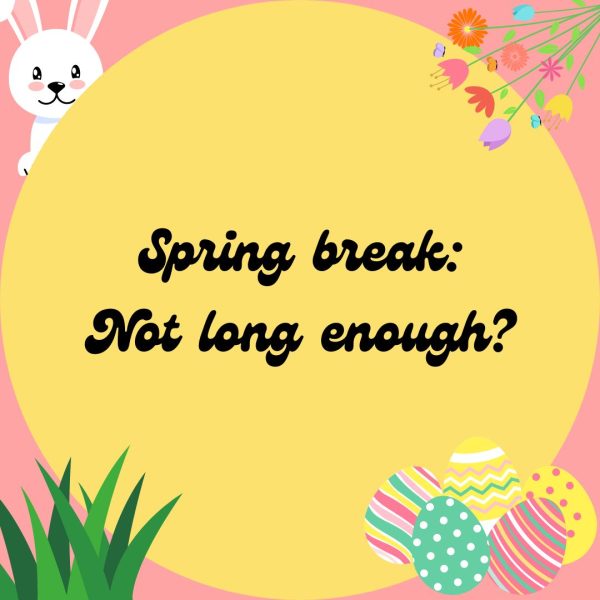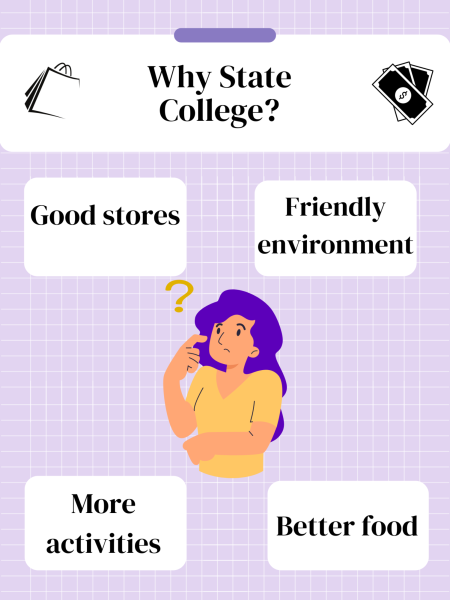Books vs. film: Which is better?
Created in Canva
Storytelling has been the primary medium of entertainment for thousands of years. Going from verbally conveyed tales, to short stories, poetry and books, eventually leading to film. For as long as books and films have coexisted, people have debated which is better. Some argue that books are superior, as they allow for greater imagination and detail, while others claim films are more engaging and accessible. So, which is it?
One of the main arguments in favor of books is their ability to provide more detail and depth than films. A book can delve into a character’s thoughts and feelings in a way a film simply cannot. For example, J.D. Salinger’s “The Catcher in the Rye” is a classic novel that takes place entirely inside the mind of its protagonist, Holden Caulfield. A film adaptation of the book would struggle to convey this level of introspection without resorting to clunky voice overs or other cinematic tricks.
On the other hand, films have a visual and auditory power books cannot match. A good film can transport you to another world in a way a book simply cannot. For instance, the film adaptation of J.R.R. Tolkien’s “The Lord of the Rings” trilogy brought the fantastical world of Middle Earth to life in a way that no book ever could. The stunning visuals, epic battles and soaring musical score all combined to create an immersive experience no book could replicate.
Of course, there are also instances where a book and a film can be equally good but in different ways. Stephen King’s horror classic “The Shining” is a great example of this. Stanley Kubrick’s film adaptation of the book is a masterpiece of cinema, with its haunting visuals and eerie atmosphere. However, the book is equally terrifying, with its detailed descriptions of the characters’ inner demons and the slow, creeping sense of dread that pervades the story.
Author George R.R. Martin, best known for his “A Song of Ice and Fire” series (which was adapted into the “Game of Thrones” television series), has stated, “A reader lives a thousand lives before he dies. The man who never reads lives only one.” Martin’s books are known for their intricate world-building and complex characters.
While books have the advantage of providing more detail and depth, films have the ability to bring stories to life in a way that books cannot. The visual and auditory elements of film can create a powerful emotional impact on the audience. A well-made film can transport viewers to another world and make them feel like they are a part of the story.
However, with the rise of technology, storytelling has become more accessible and diverse than ever before. E-books and audiobooks have made it easier to access stories, and streaming services like Netflix and Amazon Prime have made it easier to watch films and TV shows. This has allowed for a wider range of stories to be told, and for more people to have access to them.
Another factor to consider when deciding between books and films is the time commitment required. Reading a book can take several hours or even days, while a film can be watched in just a couple of hours. This makes films a more accessible option for those with busy schedules or short attention spans.
However, reading a book can be a more rewarding experience for those willing to invest the time. It allows for a deeper understanding of the story and characters and can even improve cognitive function and empathy.
Many people also enjoy reading books and watching the movie adaptation in tandem with said book, comparing them and deciding which represents the characters and plot best.
But which is actually better: books or films? The truth is, it depends on what you’re looking for. If you want to be transported to another world and have a visceral, immersive experience, then films are the way to go. But if you want to delve into a character’s thoughts and emotions, and really get to know them on a deep level, then books are the better choice.
Ultimately, it’s not a question of which is better, but rather of which medium is better suited to telling a particular story. Some stories are best told in book form, while others are better suited to the big screen. As long as both mediums continue to exist, we can enjoy the best of both worlds.

This is my second year on the newswriting staff. I mostly write opinion columbs on topics that I find important. This year, I plan to start a podcast with...




![The release of Lisa Frankenstein on February 9, 2024, has made it the best movie of the year so far. [Made with Canva]](https://aahsmountainecho.com/wp-content/uploads/2024/04/LisaFrankenstein-cover-1-450x600.jpg)
![Rivals. Spotify and Apple Music are the most even on the streaming-service playing field. Spotify was officially launched in 2008, and Apple Music in 2015. [Made with Canva]](https://aahsmountainecho.com/wp-content/uploads/2024/04/Spotify-vs-Apple-music-600x600.png)
![Lets go Bucs! The Pirates 2024 season started on March 28 with a game against the Marlins. [Made with Canva]](https://aahsmountainecho.com/wp-content/uploads/2024/04/Pirates-season-underway-600x600.jpg)




